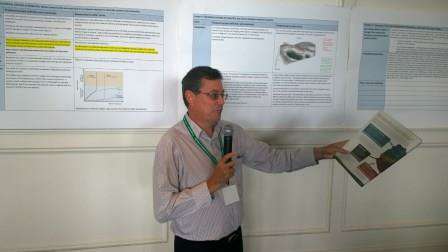Goulburn Broken Catchment Management Authority (CMA) Chief Executive Officer Chris Norman recently participated as one of only 50 scientists and experts from across the world in a United Nations workshop aimed at identifying indicators for assessing agro-ecosystem resilience.
The workshop was held in Sydney on 19-21 November 2014 and was attended by scientists and experts from over 30 western and third world countries.
Resilience is commonly defined as; “the capacity of a system to continually change and adapt yet remain within critical thresholds”. In agro-ecosystems, resilience is based on integrated approaches that bring together social, ecological and economic dimensions over various spatial and temporal scales to address complex adaptive systems. One quote made at the workshop was that 'resilience is largely about learning how to change in order not to be (unintentionally) changed’.
The resilience workshop was hosted by the Scientific and Technical Advisory Panel to the Global Environment Facility (GEF) within the United Nations Environment Programme, with input from Australia’s CSIRO and the Lund University Centre for Sustainability, Sweden.

Mr Norman said the invite arose from the ground breaking work that the Goulburn Broken CMA is doing in embedding a resilience approach to managing the Catchment’s natural resources, through its recently released Regional Catchment Strategy.
“The workshop brought together diverse expertise on resilience theory, ecosystem sustainability, conceptual frameworks and models on agro-ecosystem resilience indicators, soil science, and extensive knowledge of the role of resilience of terrestrial ecosystems in global environmental outcomes, and sustaining livelihoods,” he said. “A highlight was workshopping resilience assessment case studies for Thailand and Niger, which face enormous climate change and urban expansion pressures to sustain productivity and maintain environmental health.”
Participants considered and agreed upon a conceptual framework for assessing and identifying indicators of agro-ecosystem resilience. They then applied the agreed framework and considered what indicators of social ecological resilience were suitable for the monitoring and reporting needs of the United Nations Convention on Combating Desertification, and that could further integrate with the Convention on Biological Diversity’s and the United Nation’s efforts on ecosystem resilience. They were then asked to consider what relationships can be established between indicators of the Rio Conventions and the GEF, and agreed on an approach that will harmonize indicators used to monitor common objectives related to ecosystem resilience at a global scale.